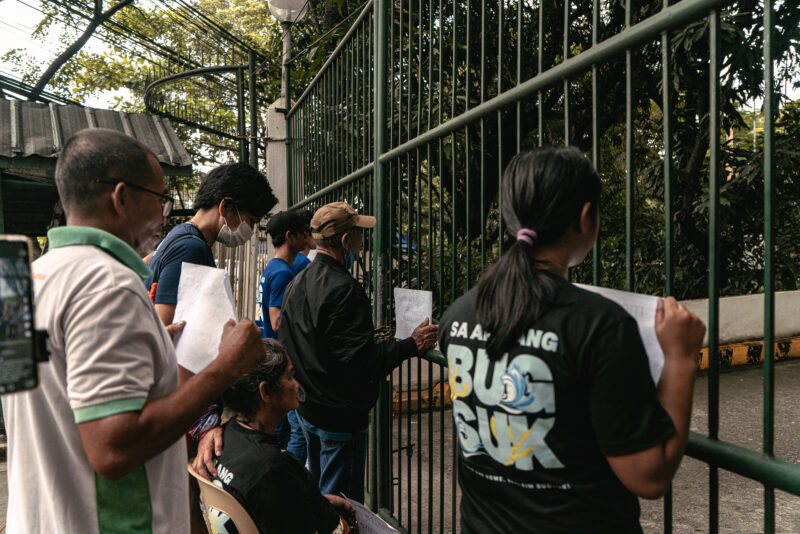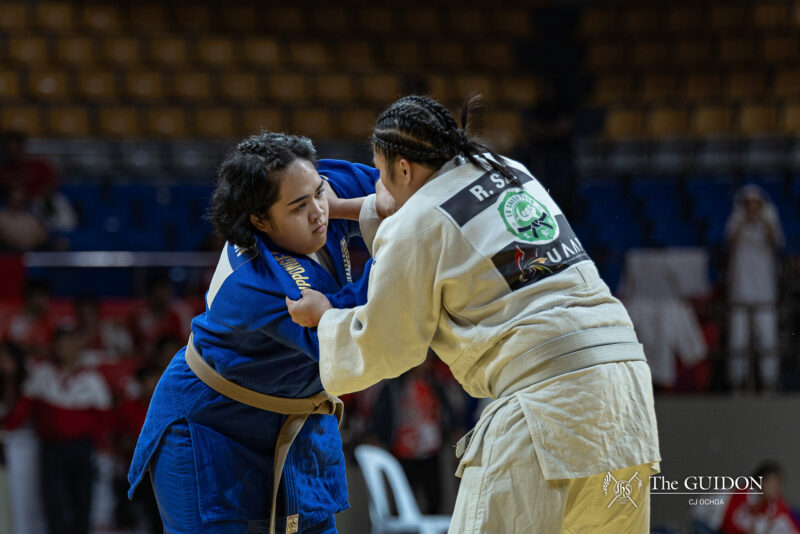A typical midday in a borough in Montreal, Canada will find a man in his early thirties—attractive and distinctly refined—reading The New Yorker by his dining room window. Work for him consists of staying home, meeting a deadline that he set for himself, and enjoying the remaining 10 or so hours of his day in any manner he pleases.
In eight months, his book Ilustrado, the winning entry for the Man Asian Literary Prize last year, will bear his name on the cover—a name known by literati and ardent fiction readers as Miguel Syjuco.
A young literatus
Before having the habitual schedule of a full-time fictionist—“I wake up naturally at around 10 am, I’ve cut out caffeine in my life and take naps when I want”—Miguel was an Atenean who had to face the problems most Ateneans have: alarm clocks and academics.
“Waking up at dawn to drive through traffic to attend Math at 7:30am was something beyond my ability,” he says.
It didn’t help that he had a weakness in his Filipino subjects, having spent 11 years in Vancouver and finishing his high school years in Cebu. Problems in love, with peers, and a raging need for independence only made it harder for Miguel. “I was a failure,” he says. “Education was wasted on me as a youth.”
Yet his eight-year college trip as an English Literature major was not as bad as it seems. He was able to develop his own writing style, generating one “Neruda-esque” poem or short story after another.
“There was a keen sense of curiosity in him in rediscovering his roots,” says Danilo Reyes (more known as DM Reyes), Miguel’s former literature professor. “He’s articulate and charming—a conversation with him is never dull.”
Miguel’s passion for writing pushed him to tread risky paths. He says. “I cut the apron strings with my parents many years ago.” Almost a decade after (finally) graduating, Miguel took on odd jobs—freelancing, selling women’s designer handbags on eBay, bartending, and becoming a medical experiment guinea pig, among others.
He got his break when he landed jobs in notable publications like The New Yorker, Esquire, The Paris Review, and The Montreal Gazette.
Filipino ilustrado
Miguel is now working on his most formidable project: editing his Ilustrado. It took him three and half years to finish the winning draft—not bad for a first attempt at a novel, and not to mention that he is the first Filipino to win the Man Asian Literary Prize, which is only at its third year of recognizing unpublished works by Asian writers.
A novel praised for being highly ambitious in showing Philippine history and politics, Ilustrado has been compared by Antonio Hidalgo, chair of the board of judges of the Palanca awards, to the sophistication of Jose Rizal’s novels.
“It [Ilustrado] is not just a boastful name-dropping of allusions,” adds DM. “One thing you see is [Miguel’s] gift for mimicry… you will see a lot of references in popular culture, history, [and] figures and events in world literature.”
Yet Miguel says, “I had no idea what I was doing. But one thing that I’ve learned… is that one’s written work is just material that needs to be revised and polished until your fingers bleed.”
Despite tackling aspects in the Filipino life, Miguel says he did not have a target readership for his book. “My life has led me to my own belief that the shared experience and the urgencies of humanity are far more important than the arbitrary and limiting ideals of nationalism,” he says. “At the same time, one writes from one’s own place in the world. And I am, very proudly, nothing if not Filipino.”
More than being a work of literature, Miguel’s book addresses many grievances in society. He says, “I touch on Philippine history because it is a rich story in which I am interested in and am proud of.”
Up the literary ladder
With a Palanca, a Loyola Schools Humanities Award for the Arts, and a Man Asian Literary Prize under his name, Miguel has come a long way from his days as a fellow in the Siliman Writers Workshop. Larry Ypil, English professor and Miguel’s co-fellow, was not the least bit surprised to find that Miguel has worked his way into the heart of the world of literature.
“There was a kind of earnestness, honesty, and sincerity [in] what he did,” says Ypil. “He always struck me as someone who was intensely interested, almost to a romantic level, really interested in writing.”
Money and recognition aside, Miguel says the most important thing he got from it all was confidence. “I wallowed in a lot of self-doubt. I couldn’t go into bookshops because I’d see so much crappy writing being published and think, ‘Why won’t anyone publish my crappy work?’” he says. “Now people will be publishing my crappy work—in 13 languages!”
Even though the lingering question of whether his book will be published because of its meaty content or of the prize it has won remains, Miguel says, “I’d like to think that the prize highlighted the book’s inherent merit. But I’ll always live with doubt [because] it is the writer’s albatross.”
Writing for humanity
As a writer who has been rejected countless times by publishers, Miguel can only give the simplest advice, the same one that he has followed the moment he has picked up a pen: write and accept rejection.
“I’ve tried everything and put aside everything else in order to become a writer,” he says. “The only secret I know to my relative success has been plain and simple and honest hard work.”
Despite living an enviable writer’s life, Miguel’s works still have one common denominator. “My stories are simply me trying to understand my place in humanity,” he says.
For a man who once sported orange hair, flunked math thrice, and had a pretty hard time learning his own language, Miguel is now happily writing a new chapter in his life, beginning with long walks after a day’s work, or a drive in his German sports car, hand-in-hand with his beautiful half-German, half-Filipina girlfriend.
This time, the story is real.
Writing numbers
Math may have been Miguel Syjuco’s bane back in college, but these simple numbers shed light on his journey as an independent writer, from spending eight years in the university to working his way up the literary ladder.
4 – The estimated number of times he had to take Math 12
6 – The number of publishers so far that has agreed to publish Ilustrado, including UP Press(Philippines), Penguin(Canada), Picador (United Kingdom), and Random House(Australia and New Zealand)
10 – The time in years that he worked many jobs before becoming a full-time writer
13 – The number of languages the book will be translated to. The Filipino version will be translated by DM Reyes of the English Department.
25 – The number of short stories he has written, most of them unpublished
2010 – The year Ilustrado gets published (“2010 will be a happy year for me,” says Miguel.)
10,000 – The cash prize, in US dollars, for winning the Man Asian Literary Prize in 2008






